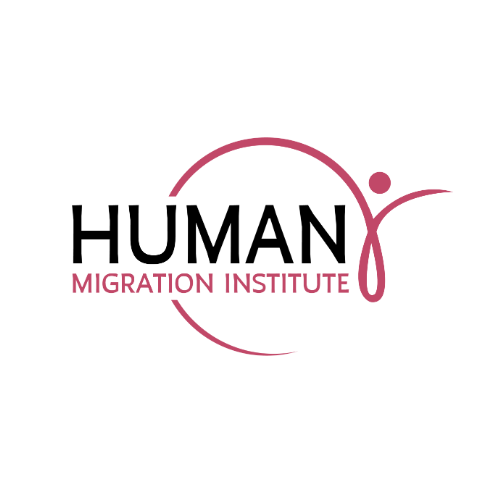Mental Health Awareness Week 2023
Every year, the UK Charity, Mental Health Foundation, organizes a Mental Health Awareness Week, designed to bridge communities and decision makers together in an effort to make our society more compassionate, aware and understanding in our approach to mental wellbeing. The purpose of this week is to provide an opportunity to engage in discussions, reduce stigma, and encourage support for individuals who may be experiencing significant mental health challenges.
This year, Mental Health Awareness Week fell on May 15-21, focusing specifically on the theme of anxiety. While it is common for everyone to feel anxious at times, severe anxiety disorders can be debilitating, requiring extra support systems and services that are often overlooked in society. Those who suffer with other severe mental illnesses are especially susceptible to heightened anxiety, dealing with stressors caused by discrimination, side effects of medication, and limited access to basic necessities such as housing, employment, and welfare.
HMI’s Role in Supporting refugee mental health
This week was essential in promoting the educational advancement of these unique problems, facilitating important conversations regarding strategies for alleviating external triggers that exacerbate anxiety. At HMI, we took action by hosting a 5-week Behavioral Health Workshop, in collaboration with Malama Collective, aimed at exploring coping skills and fostering resilience for those currently facing the impact of migration and displacement. Our instructors guided participants in discovering new ways to cope with stress, forge healthy relationships, and enhance general well-being, hosted thanks to the generous support of the Islamic Center of Riverside. Newcomers were given a platform to connect and share their experiences in a safe and inclusive environment whilst learning from each other’s stories and empowering one another. This workshop has demonstrated the commendable determination of the women who showed up and continue to invest in their mental health by taking the difficult strides towards growth and holistic well-being.
Challenges in Refugee Mental Health
At HMI, we are committed to equipping target groups with useful resources needed to live their lives to the fullest, serving as advocates for change in the de-stigmatization of mental illnesses, particularly when it comes to refugee and migrant populations. Asylum seekers require our attention as they are often forced to tackle complex challenges with resilience, experiencing a fivefold higher risk than host populations of developing poor mental health outcomes (1), including higher rates of depression, PTSD, and other anxiety disorders. Pre-migration experiences, like war trauma, and post-migration conditions, like family separation, poor housing, and difficulties with asylum procedures, all contribute to the likelihood of developing mental illnesses down the line. Yet, though nearly 61% of refugees (2) will experience severe mental distress, they are significantly less likely to receive support than the general population, largely due to structural barriers such as lack of education about available resources, health insurance issues, and provider refusal to treat refugees (3). Language proficiency and access to affordable transportation options are also significant impediments in the acquisition of mental health services.
Trauma-Informed Care for Refugee Mental Health
With the recognition that addressing refugee mental health is essential for the well-being and recovery of individuals who have experienced trauma and displacement, HMI provides mental health support services through ‘telemental health’ services and trauma-informed skills-building group workshops to Syrian, Afghan, and Ukrainian refugee populations. Collaborating with the International Blue Crescent, we have connected Ukrainian refugees in Moldova through telepsychiatry and teletherapy sessions which serve as an effective alternative to face-to-face care. Recently, we hosted a workshop on Trauma-Informed Volunteering, to equip our volunteers with the tools to provide more sensitive and compassionate care.
Applying the trauma-informed approach to refugee mental health is highly beneficial as it recognizes the significant impact of trauma on a person's mental, emotional, and physical well-being and seeks to create an environment that promotes empathy and healthy healing. It is based on six guiding principles, including ensuring safety, fostering trustworthiness and transparency between service providers and individuals, recognizing the importance of peer support, enhancing collaboration and mutuality, encouraging the empowerment of voice and choice, and accounting for nuanced cultural, historical, and gender issues. Applying this approach helps organizations like us tailor care to be sensitive and responsive to different contexts, as various Afghan, Syrian, and Ukrainian refugee populations possess distinct culture-specific needs and definitions of trauma. Such an approach also enables us to promote a strength-based focus, nurturing the resilience and recovery of refugee communities through an emphasis on bolstering their positive capabilities and qualities.
To continue uplifting these principles, we urge you to aid in our effort of providing mental health support to refugee communities, whether it be through volunteer involvement in psychological services, or allocating donations for us to reach more individuals in need.
Addressing refugee mental health is a lengthy process involving constant attention and prolonged care, as the negative effects of trauma can persist for extended periods of time. Spreading the word of Mental Health Awareness Week and raising awareness for refugee well-being is a wonderful opportunity for anyone to partake in this compassionate effort!
Eaton, V., Ward, C., Womack, J., & Taylor, A. (2011). Mental Health and Wellbeing in Leeds: An Assessment of Need in the Adult Population. NHS Leeds.
Eaton, V., Ward, C., Womack, J., & Taylor, A. (2011). Mental Health and Wellbeing in Leeds: An Assessment of Need in the Adult Population. NHS Leeds.
Morris, Meghan D., et al. “Healthcare Barriers of Refugees PostResettlement.” Journal of Community Health, vol. 34, no. 6, 2009, pp.
529–538., doi:10.1007/s10900-009-9175-3.


